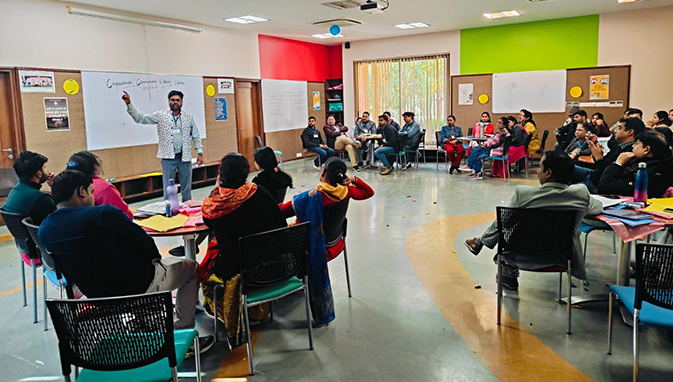Piramal School of Leadership
Transform public systems and unlock human potential through leadership development
- Home: Gandhi Fellowship
- Piramal School of Leadership
PIRAMAL SCHOOL OF LEADERSHIP, A WORLD CLASS RESIDENTIAL FACILITY
Piramal School of Leadership (PSL) envisions an India in which leadership begins with personal transformation for public change through selfless service. The PSL idea was born from a felt need to build leadership among government officials and strengthen good governance within government. We believe that leadership is key to both improving service delivery and driving systemic development. The raison d’être of the school is to do so by building capacities in leaders across the domains of education, health, climate change and justice so that they can develop an ability to recognise and meet the needs of others. At PSL, we are dedicated to developing a pipeline of such leaders from among government officials who can tackle the most pressing social challenges of our time.




Gandhi Fellows as Agents of Change in THC
The world is changed by your example, not by your opinion. At PSL we believex that youth play a critical role in influencing the last-mile behavioural change. In the process they become better, influential leaders themselves. The school provides a platform to Fellows to engage with public officials for addressing real problems in the domains of: 21st Century Education, Public Health, Climate Change and Sustainability. Fellows enable officials at state, district and block levels across departments by engaging with: (1) Work at the level of policy. (2) Work in schools for demonstration of innovative approaches. (3) Work with communities to generate awareness.
Fellows at PSL would be either engaging with a block level school system on delivering social emotional curriculum or aesthetic or sports literacy, or digital education for the girl children, or working with village water committees with a focus on providing access to clean drinking water through the Jal Jeevan Mission and building community based innovative solutions to tackle the local environmental challenges.
The Challenge
SYSTEM
Legacy structures do not support innovation and agility
MANPOWER
Traditional HR systems unable to attract talent, build Leadership pipeline, and grow talent
LEADERSHIP
Authoritative, top down approaches achieve compliance and not commitment


